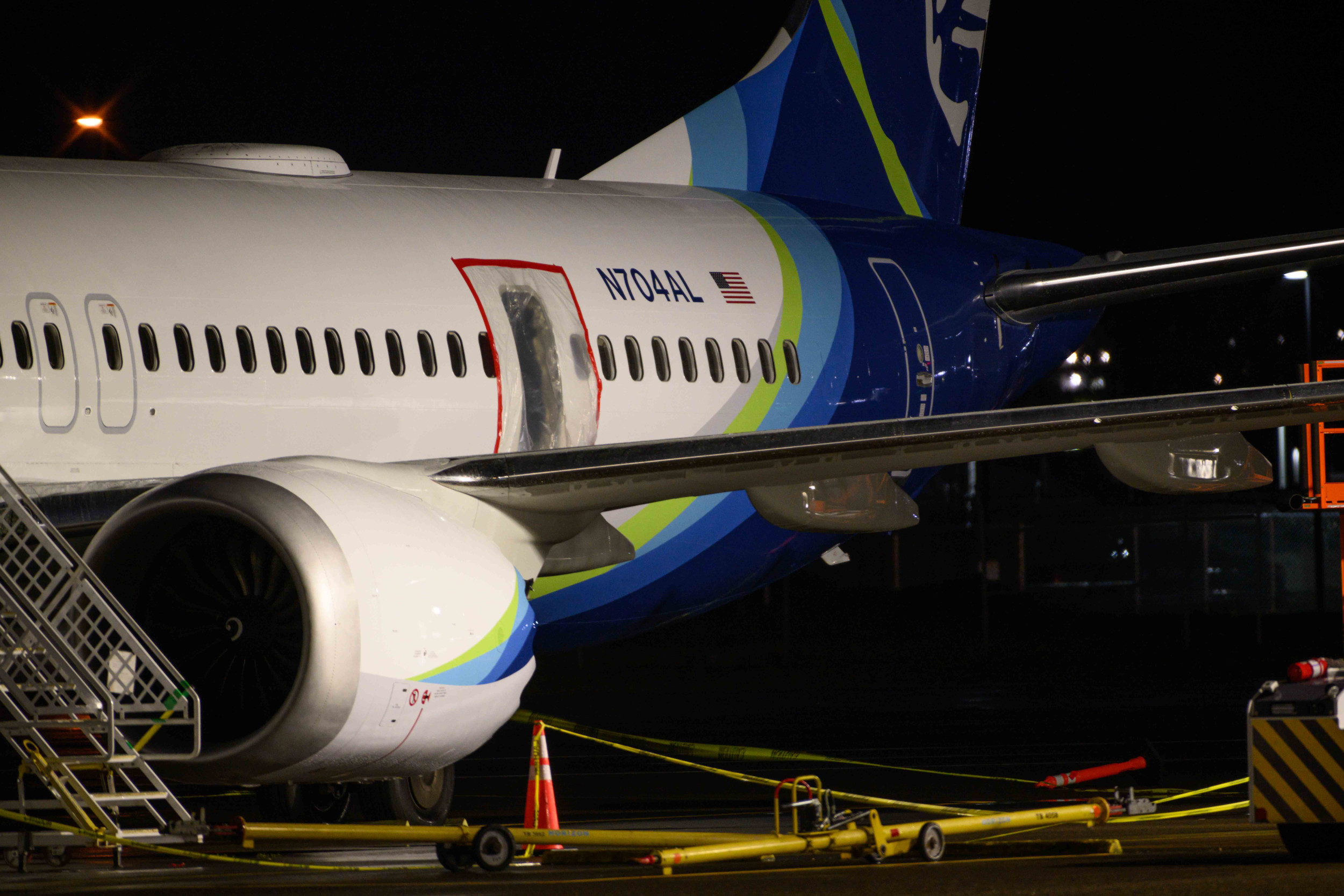
ALASKA AIRLINES SENDS 737 BLOWOUT PLANE BACK TO BOEING
The Boeing 737 Max 9 aircraft that had its door plug blown out midair during an Alaska Airlines flight in January will not return to service, at least under the Alaska livery.
"We have entered into a purchase agreement with Boeing for aircraft N704AL MSN 67501. They've taken possession of it, and the registration has been changed. It's no longer part of our fleet," said an Alaska Airlines spokesperson.
Alaska Airlines has placed an order for a new 737 Max 10, confirmed by Boeing in its latest orders and deliveries report.
Aviation experts believe it is unlikely that Alaska Airlines paid full price for the new jetliner. Instead, a trade-up deal seems more likely, serving as a form of compensation for the extended ordeal faced by the airline.
Boeing has already paid Alaska Airlines $160 million in initial compensation for the incident, covering the airline's losses and costs associated with returning its fleet to service.
The technical reasons why Alaska Airlines could not return the jetliner to service remain unclear. Federal regulators have not publicly suggested that there were concerns with the aircraft apart from the door plug. Currently, the airline operates 65 Boeing 737 Max 9 aircraft, with up to 20 undergoing preliminary inspections.
On January 5, Alaska Airlines Flight 1282 experienced a near-catastrophic failure when a plug door blew off the fuselage at 16,000 feet, leading to cabin depressurization.
The flight, en route from Portland, Oregon, to Ontario, California, made an emergency landing back in Portland. All 171 passengers and six crew members survived, with three sustaining minor injuries.
The National Transportation Safety Board (NTSB) investigation revealed that four bolts intended to secure the door plug were missing. Boeing records indicated that the plug had been reinstalled without bolts prior to the aircraft's initial delivery.
Following the incident, the Federal Aviation Administration (FAA) ordered the indefinite grounding of all 737 Max 9 aircraft for comprehensive safety checks.
In June, U.S. investigators sanctioned Boeing for revealing details of the blowout probe and referred the matter to the Justice Department, prompting the planemaker to issue an apology.
Legal action remains ongoing, including a suit filed by six Alaska Airlines fliers and a relative against Boeing on behalf of all 171 on board the flight.
Separately, Boeing reached a plea deal with the federal government regarding previous violations of a 2021 settlement related to interactions with the FAA before the fatal 737 MAX crashes in 2018 and 2019 that resulted in 346 deaths.
The arrangement includes a $244 million fine, three years of probation, and the appointment of a corporate monitor to ensure compliance with safety regulations.
The company has been under intense scrutiny, with CEO David Calhoun defending its safety record in Senate hearing back in June. Lawmakers have accused Calhoun of prioritizing profits over safety, failing to protect whistleblowers and receiving excessive compensation. Despite calls for his immediate resignation, Calhoun has stated he plans to step down by the end of the year.
Boeing's delivery figures for the first half of 2024 showed a peak in June but a significant yearly decline. Deliveries fell by 34 percent compared to the previous year, dropping from 266 to 175 planes, amid ongoing legal challenges and aircraft issues.
Do you have a story we should be covering? Do you have any questions about Boeing? Contact [email protected]
2024-07-11T20:23:18Z dg43tfdfdgfd